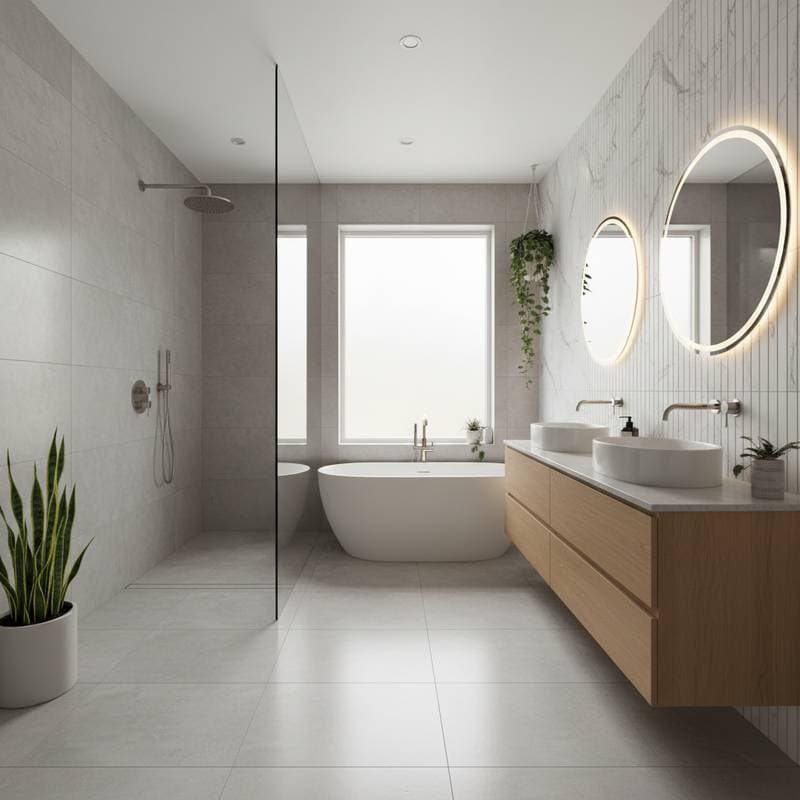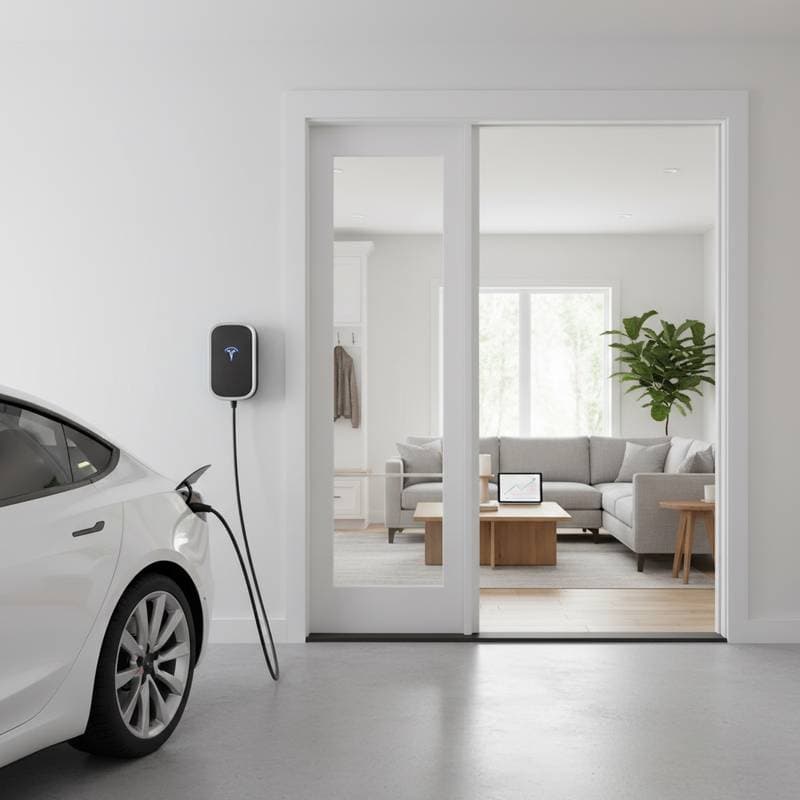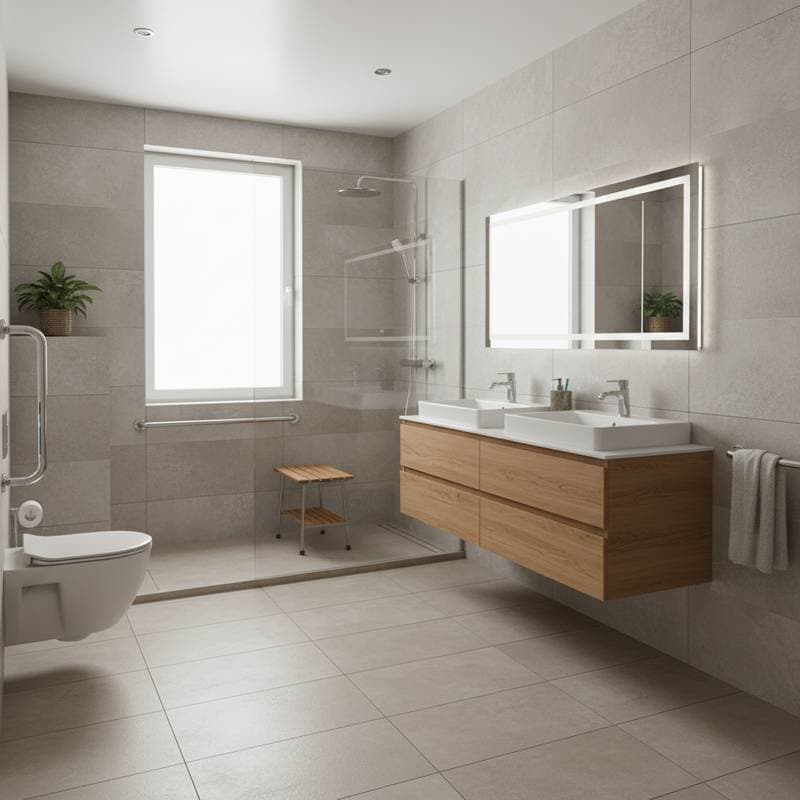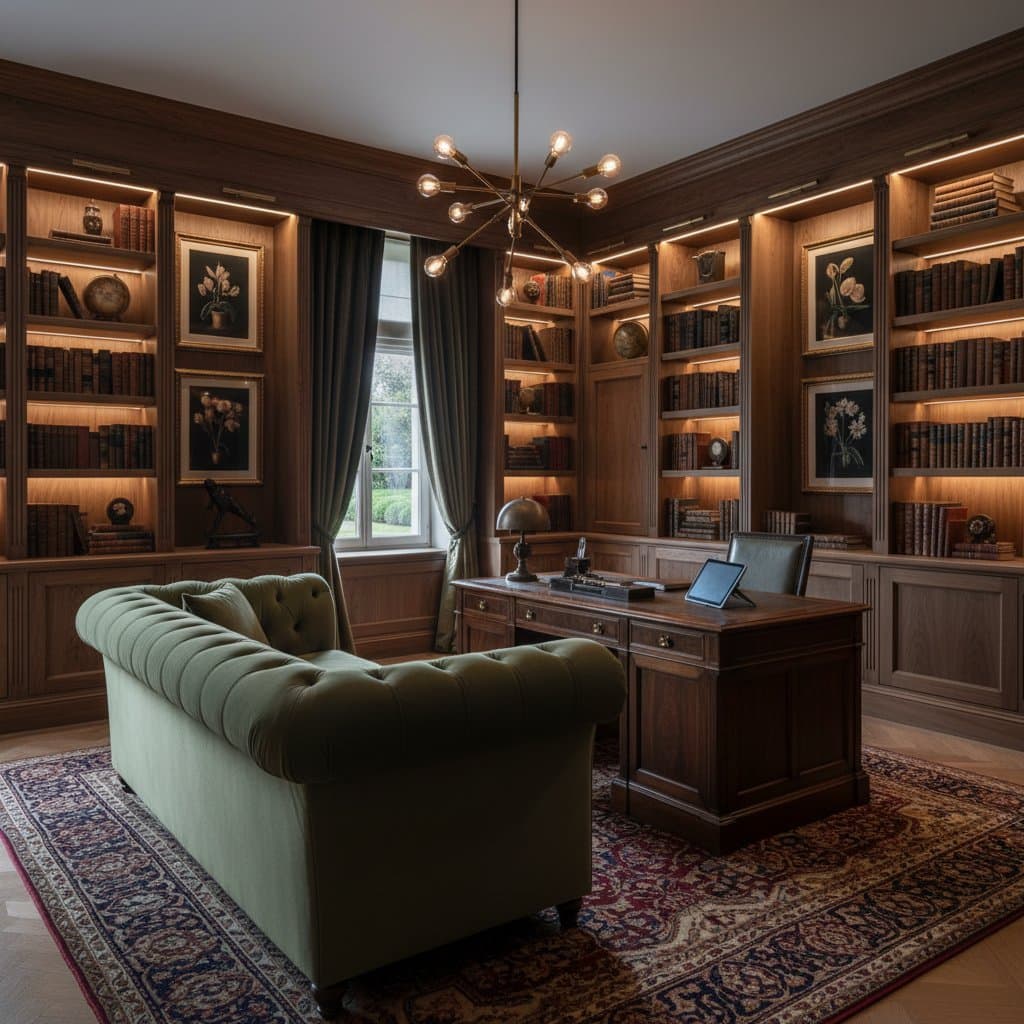Understanding the 2025 Moody Dark Interior Trend
Homeowners increasingly turn to dark interiors for their ability to craft serene, luxurious environments. This trend incorporates deep shades like charcoal grays, navy blues, and warm earth tones, paired with subtle lighting and varied textures such as velvet upholstery or woven rugs. It seamlessly integrates into contemporary, traditional, or rustic settings, appealing to those seeking emotional depth and visual intrigue without overwhelming the space.
When executed thoughtfully, these designs elevate a property's perceived worth by conveying intentional craftsmanship and premium materials. For properties entering the market, dark interiors capture attention in listing photographs and during showings, distinguishing them from standard offerings. Real estate experts note that such updates can accelerate sales and command higher offers from discerning buyers.
Benefits and Drawbacks of Dark Interiors
Key Advantages
- Enhanced Visual Depth: Dark walls create layers that draw the eye, fostering a sense of intimacy and refinement in living spaces.
- Conceals Imperfections: These hues effectively mask everyday marks, scratches, and dust, maintaining a polished appearance over time.
- Highlights Accents: Furniture, artwork, and metallic elements stand out vividly against darker backdrops, amplifying decorative impact.
- Promotes Relaxation: The subdued palette cultivates a tranquil ambiance ideal for bedrooms or reading nooks, reducing visual fatigue.
- Boosts Market Appeal: Properties with moody designs often attract more viewings, as buyers associate them with modern luxury.
Potential Challenges
- Lighting Demands Precision: Insufficient illumination can render rooms gloomy; plan for multiple light sources to maintain warmth.
- Increased Cleaning Needs: Dark surfaces reveal lint, pet hair, and smudges more readily, requiring frequent gentle wiping.
- Space Perception Issues: In compact areas, dark tones may compress the feel; counteract with expansive mirrors or light furnishings.
- Application Complexity: Transitioning from light to dark paints demands thorough priming and multiple coats for uniform results.
- Risk of Overkill: Poorly balanced schemes might appear oppressive or outdated; select complementary shades carefully.
Tackling the Project: DIY or Professional Help?
DIY Approach
This project suits individuals with moderate to advanced painting skills. Allocate 2 to 4 days per room, depending on size and surface conditions. Essential tools include high-quality rollers for broad coverage, angled brushes for edges, painter's tape for clean lines, fine-grit sandpaper for smoothing, protective drop cloths, and adjustable work lights to assess color in real time.
Common pitfalls involve inconsistent application leading to visible streaks or miscalculated lighting that alters the mood. Practice on sample boards first to gauge how tones interact with your room's natural light.
Hiring Professionals
Engage a certified painter or interior designer for multi-room transformations or intricate features like cabinetry refinishing. Experts excel in selecting harmonious color palettes, recommending appropriate sheens such as eggshell for subtle luster, and mapping out lighting schemes that enhance rather than overpower the design. For textured surfaces or built-in elements, professional preparation guarantees flawless adhesion and longevity, avoiding costly redo's.
In high-demand areas, budget for consultations starting at $200 per hour, with full-room execution ranging from $2,500 to $8,000 based on scope.
Long-Term Care and Durability
Dark interior finishes typically endure 5 to 10 years before needing significant updates, provided regular upkeep occurs. Dust walls monthly using a microfiber cloth lightly dampened with a pH-neutral cleaner to preserve the finish without dulling it. Steer clear of abrasive tools that could strip the paint's protective layer; instead, spot-treat stains promptly with a soft sponge.
Annual touch-ups on high-contact areas like door frames or baseboards keep the look sharp. Opt for paints with robust warranties, often spanning 10 years for fading resistance and peel prevention, particularly in satin or low-sheen varieties that forgive minor surface irregularities better than glossy alternatives.
Incorporate durable fabrics and finishes from the outset, such as stain-resistant textiles, to extend the overall scheme's vibrancy.
Considering Local Influences
Environmental Adaptations
In sun-drenched climates like Southern California, dark interiors absorb heat and minimize harsh glare, promoting a cooler indoor retreat. Conversely, in overcast regions such as the Pacific Northwest, incorporate warm-toned LED bulbs (around 2700K) and glossy accents to reflect available light and ward off dreariness.
Test samples under varying conditions to ensure the palette aligns with your locale's light patterns throughout the day and seasons.
Regulatory and Material Notes
Dark color choices face no unique building codes, though integrating new lighting may require electrical upgrades in vintage homes. Verify your panel's capacity supports additional fixtures to prevent overloads; consult a licensed electrician if circuits date back more than 20 years.
Prioritize eco-friendly, low-VOC paints to comply with indoor air quality standards and reduce off-gassing.
Cost Variations by Location
Labor in metropolitan hubs like Los Angeles or New York incurs premiums of 20 to 40 percent over national averages, reflecting higher material transport and skilled workforce demands. In suburban or rural settings, rates dip but expect extended scheduling, sometimes 4 to 6 weeks for availability. Factor in these differences when planning budgets to avoid surprises.
Maximizing Return on Investment for Resale
Strategic moody dark designs can elevate a home's market value by 3 to 5 percent, translating to $15,000 or more for median-priced properties. Buyers gravitate toward spaces that exude curated elegance, with dark elements in kitchens, primary suites, or powder rooms shining in virtual tours and open houses.
To safeguard ROI, prioritize non-permanent changes like wall colors and removable decor over fixed features such as stained cabinetry or dark tiles, which complicate future alterations. This flexibility reassures buyers, ensuring the upgrade enhances appeal without limiting their personalization options. Data from recent sales indicates homes with balanced dark schemes sell 15 to 20 percent faster than neutrally painted comparables.
Essential Safety Measures
Before installing or adjusting light fixtures, switch off electricity at the main breaker to eliminate shock risks. Ensure ample ventilation during painting sessions by opening windows and using fans; select low- or zero-VOC formulas to safeguard respiratory health indoors.
Position ladders on stable, level surfaces and secure them properly. Store paints and thinners in sealed containers far from ignition sources like pilot lights or space heaters. Wait for complete curing, typically 24 to 48 hours, before repositioning heavy items to avoid damaging fresh surfaces.
Frequently Asked Questions
How can I prevent a dark room from appearing cramped?
Incorporate multi-level lighting such as recessed cans, table lamps, and sconces to distribute illumination evenly. Add reflective elements like mirrored panels, polished brass hardware, or glass-topped tables to bounce light and expand perceived dimensions.
Which areas of the home are ideal for dark interiors?
Focus on restorative zones like master bedrooms, formal dining rooms, and cozy living rooms where depth enhances comfort. Reserve brighter tones for busy corridors or kitchens to maintain functionality.
Is combining dark walls with light flooring effective?
Absolutely; pale hardwoods or neutral tiles provide grounding contrast, averting a enclosed sensation. Layer with patterned rugs in complementary shades to unify the composition seamlessly.
Will dark kitchens negatively impact resale value?
Not when paired with ample task lighting and crisp white countertops for balance. Contemporary buyers often view matte black or deep green cabinetry as a premium, chef-inspired feature.
What is the optimal paint finish for dark shades?
Eggshell or matte sheens offer a velvety look while concealing brush strokes and imperfections effectively. Reserve gloss for trim accents only if surfaces achieve mirror-like smoothness.
Implementing Your Dark Interior Vision
Begin with a low-commitment trial, such as accenting a single feature wall in a guest bath or home office. Evaluate how the colors shift from morning to evening light, adjusting as needed with sample pots from local suppliers.
Introduce balance through light-hued textiles, natural wood grains, and metallic touches to prevent monotony. Select streamlined furniture silhouettes and minimal patterns to emphasize the palette's inherent drama.
Once confident, scale up methodically, securing proposals from at least three vetted professionals. Review their portfolios for similar moody projects and discuss timelines, material specs, and post-completion warranties. With meticulous planning, quality execution, and ongoing care, this trend delivers enduring sophistication and substantial equity growth for your home.











